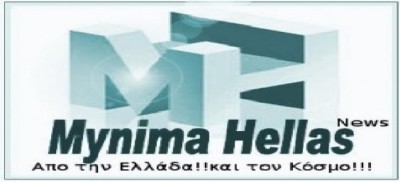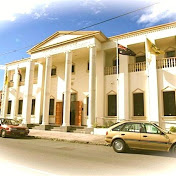
John Michail reflects on the political leaders emerging from Australia and around the globe today
From my experience in the past it wasn’t like this …
What have the voters been telling our leaders lately? Basically, no matter whether it’s Australia, Britain, France or the United States, they’re saying in their millions that they’re fed up. They’re fed up with the barren years of unemployment, lack of affordable medical care and housing, and a perception that immigration is working against their interests, together with gloomy times ahead for young people.
Worldwide, the lack of trust that has been brewing for many years has exploded into factionalism and a growing disgust of ‘the establishment’. This growing divide between the informed public and the ordinary population on issues of trust and transparency has created an unhealthy environment for all. There’s an increasing belief that the moneyed political elite are getting everything their own way. Populist politics are on the rise, as shown by Donald Trump in the US, Marine Le Penn in France and Brexit in the UK. Their clear message is that the politicians will ignore working people, the middle classes and everyone else that does not belong to their brand of self-entitlement, to their peril.
Where does Australia stand among the rhetoric and discontent? Where did the recent federal election leave us? By all accounts, up the creek for many years to come. As former Victorian Premier Jeff Kennett noted in the Herald Sun: “Nothing in this campaign addressed the interests and needs of our young people, those who will be charged with generating wealth for the next 30 to 50 years.”
With no moral authority to govern, there’ll be no reformist agenda, no strong and defining government.
“Australia is simply bereft of genuine and visionary political leadership. Campaigns are still conducted with a combination of short termism and fear, and that is emphatically not the path to growth and opportunity,” said Kennett.
The inevitable ‘play it safe’ attitude may even bring about the kind of populist backlash seen with Britain’s Brexit vote and its confused aftermath.
What does the Brexit disaster tell us? The marches, the calls for another referendum, David Cameron’s resignation, Boris Johnson’s axing, Nigel Farage’s withdrawal, the pressure for Jeremy Corbyn to resign – it goes on and on. And now, looking back, the long-awaited British enquiry into the Iraq War and the 2003 invasion means bad news for Tony Blair and George Bush and the decisions that led to the deaths of thousands of troops and the rise of Islamic State.
We can thank our lucky stars that Australia is less class conscious, nationalistic, or (as yet) riven by bitterness about the inequalities between rich and poor. What we have got is an undoubted marked lack of principled leadership ability.
We’re politically crippled at a time when we should be growing the country’s wealth and power, and setting ourselves up to meet the tremendous challenges and changes coming in the near future.
In France, the goal of ever-closer European union has been seen as ‘patriotism for humanity’ for many years. But the leader of the National Front, Marine Le Pen, thinks differently.
After the referendum, she praised the British people for standing up to the ‘totalitarian EU, that prison of people’. Then she cheered, “Frexit is next!” She promised that if she were elected president next year, France would be next to have a vote, no doubt causing the same internal strife as that being experienced in the UK.
The situation in the US is paradoxically the same – but different. Here we have aspiring leaders like Donald Trump who know little of governance or have experience of the way leadership works in the entrenched political world.
He also has no reticence or shame in insulting the poor, immigrants, Mexicans and women with equal fervour, and his authenticity and transparency in his business or political dealings have been challenged, but the people are saying who cares – the others are worse. His rhetoric appeals to millions who are unable to look beyond the wild ideas that satisfy their inner urge to destroy and punish and will probably do nothing for the future of their country. They intend to cripple it in order to ‘save’ it … that’s what desperate people do sometimes.
Does this leadership showboating have any relevance for us? Sadly, yes. Would you want your business to have similar leadership? Do you believe it’s perfectly all right to have someone at the helm who doesn’t know anything about business? Would you go along with it if that leader believed that getting rid of the foreigners on the staff would change the business’ fortunes for the better?
Probably not. And yet, that’s exactly what’s happening in the US. We can only hope that one day very soon the populace will realise that a manufactured politician (today they’re everywhere) is going to do nothing to make their lives better, and is likely to make them considerably worse.
Take those truths and apply them to yourself. Would you organise your family, business or community organisation in the way that the plastic politicians want to run their countries?
Are you transparent in your business dealings? Do you pay attention to what your workforce is saying? Do you listen to individuals and their concerns – and then do something about it?
In case you’re undecided, transparency has been defined as a ‘lack of hidden agendas or conditions, accompanied by the availability of full information required for collaboration, cooperation, and collective decision making’.
Your company is an extension of your outstanding personal reputation
Much-loved by those politicians making promises necessary to gain public office, transparency is more than just a buzzword. It means clean, unblemished honesty. It means that your company is an extension of your own outstanding personal reputation.
As in politics, the importance of transparency in the decision-making process is often overlooked. It’s a given that transparency leads to clarity, and in turn, that transparency makes the workforce more confident and productive. There are huge benefits in having the type of company structure that enables employees to have easy access to their manager or CEO. In turn, management should try to keep transparent the reasons why they make their decisions.
If we ran our businesses the way politicians run their countries, we’d be in dire straits. As indeed, the Brexit vote has proved. We don’t operate our businesses or community organisations for the benefit of ourselves rather than the wider public. We recognise that everyone in our family has to share in the family resources, not just ourselves.
You’ll improve your company culture, employee morale and productivity by being a fair and honest leader. Your impact will spread beyond your family, business and community. If you establish a reputation for honesty and decency, you’ll gain the respect that many of the plastic politicians so sadly lack.
And then, maybe, your community and country will call on YOU!
source:neos kosmos



















